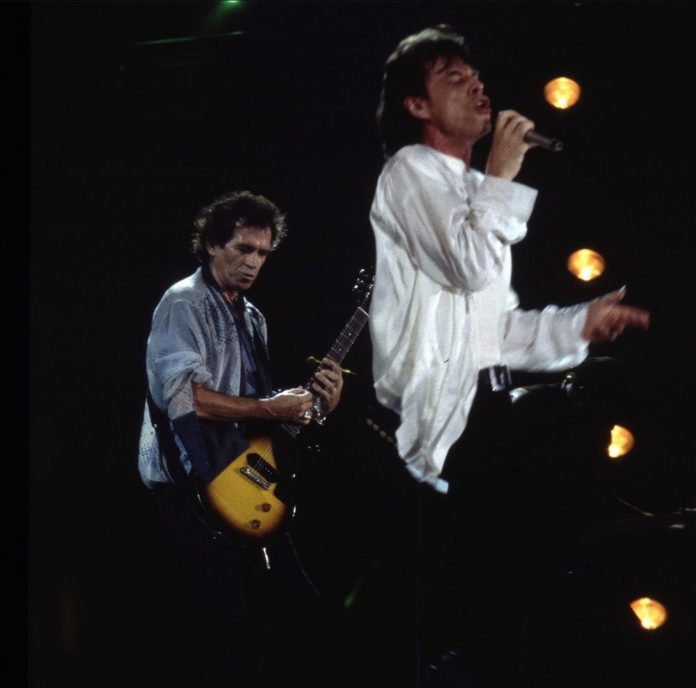Musicians and their lawyers have been regularly telling Donald Trump to stop using their songs at his campaign events. The Rolling Stones, R.E.M., the members of Queen, the O’Jays and the estate of Luciano Pavarotti, for example, said the use of their work was unauthorized, and threatened to sue or explore other legal options.
Here’s the key: Under U.S. copyright law, campaigns can use music as much as they want at their events without explicit permission of the artist, so long as they have purchased a “blanket license” from performance-rights organizations like the American Society of Composers, Authors and Publishers, known as Ascap, and Broadcast Music Inc., or BMI.
While artists can publicly shame a politician into not using their music, as they have done with their many angry tweets directed at Trump, they have no legal remedy under copyright — so long as the campaign gets the proper license (as nearly all campaigns do) for its event.
Notably, adding a song to a video for the candidate, as opposed to using it in a live event, is a different issue, since video synchronization rights do require a specific license from the publisher.
The presidential campaign of Republican Sen. Ted Cruz got into trouble when one of his vendors failed to procure the proper licenses for background music in his videos. And if Republican Sen. Rand Paul ever again wants to upload a chainsaw video to YouTube with a rock song in the background, he will need to negotiate a master-use license for the sound recording and a synchronization license for the composition. Or he can just get it from a stock-music service, a “one-stop shop” of sorts for music rights.
While video cases like this, involving a candidate’s campaign organization, are clearer cut, there’s still a danger that a politician can get into trouble without directly doing anything wrong. The most notable example of this was in the 2008 presidential race when the Jackson Browne song “Running on Empty” was used without the proper license in a campaign ad for Senator John McCain. Even though McCain had no knowledge of or involvement in the creation or distribution of the offending video by the Ohio Republican Party, he got dragged through the mud, and the Republican National Committee was forced to settle for an undisclosed sum of money.
More recently, artists have had the option to withdraw permission from candidates who already obtained a blanket license to use their songs. In the 2012 campaign season, BMI created a separate license for “political entities or organizations”; Ascap has its own version. This allows musicians to withdraw rights to a song for any reason.
It’s unusual, since licensing under a performance-rights organization is normally “all in or all out,” because it’s a compulsory blanket license under a consent decree from the U.S. Justice Department. Blanket licenses, by definition, don’t normally let you opt out.
This clause was invoked after the Republican National Convention in Cleveland, when Queen pulled Trump’s right to play “We Are the Champions.” But the Quicken Loans Convention Center also had a license to play songs in BMI’s catalogue, with no such opt-out clause. Theoretically, Trump could go to any other venue that had such a blanket license and play the song without infringing copyright since Queen already had assigned the rights to public performances of their songs to BMI.
Nonetheless, even if artists have bought into the bulk-licensing system and assigned control of their rights under copyright, they still have some powerful tools to go after users whose political speech they don’t agree with. Beyond copyright, an artist has at least three other avenues to pursue to thwart unwanted use of his or her songs. According to Ascap guidelines, these are:
– The right of publicity, which in many states provides image protection for famous people or artists.
– The federal Lanham Act, which covers the confusion or dilution of a trademark (such as a band or artist name) through its unauthorized use.
– False endorsement, whereby the use of an artist’s identifying work implies the artist supports a product or candidate.
These are all intended to give artists the ability to protect their brand and reputation.
But would anybody really think Mick Jagger was endorsing Trump, just because the Republican nominee (inexplicably) played “You Can’t Always Get What You Want” to close the Republican convention in July? Or that people will buy the music less because of this? Music use is ubiquitous, and we are used to hearing it in any number of contexts without assuming there’s an endorsement.
When licensing rights are assigned to a performance-rights organization, they ought to allow it to license the music to anyone, for any purpose. This is generally a good deal, because these organizations facilitate low-friction transactions, streamline the distribution of royalties and help create a broader market for an artist’s work. In other words, blanket licenses help artists get their music played by bars, restaurants, stores and, most important, digital and broadcast radio. It’s not a model free market by any means, but it basically works.
This is not like the baker who objects to catering a gay wedding. This is the baker selling to a wholesaler, then objecting when a gay couple purchases one of his cakes at the grocery store.
Roughly 74 percent of political donations from people in television, music and the movies went to Democrats during the 2014 election. While such a bias in the entertainment industry shouldn’t be surprising, it should not affect the even-handed enforcement of the law.
So no matter what one thinks of Donald Trump, he doesn’t deserve to be called out for “unauthorized” use of music at his campaign events.






